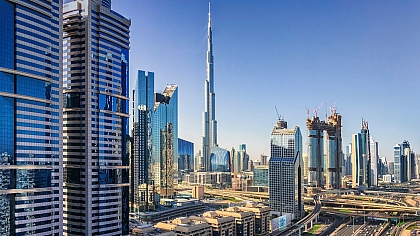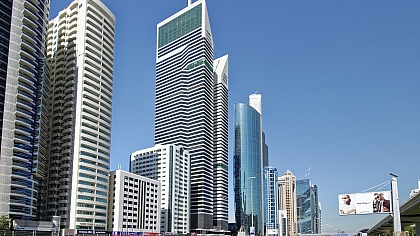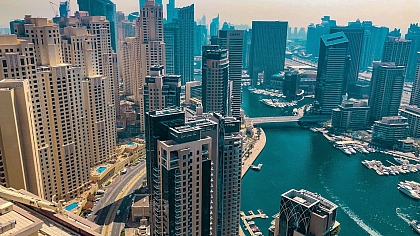
Dubai's Real Estate Regulations: A Comprehensive Guide for Buyers
Dubai's dazzling skyline and modern architecture have made it a global hub for real estate investment. But with great opportunities come complex regulations. Whether you're a first-time buyer or a seasoned investor, understanding Dubai's real estate regulations is paramount.
This comprehensive guide will navigate you through the intricacies of buying property in this dynamic city.
1. Freehold vs. Leasehold: Know the Difference
Dubai offers both freehold and leasehold ownership options. Freehold properties grant you full ownership, while leasehold properties are owned for a specific period, often tied to the land's lease duration. Understanding these distinctions is vital in making an informed decision about the type of property that aligns with your investment goals.
2. The Role of RERA
The Real Estate Regulatory Authority (RERA) plays a central role in regulating Dubai's real estate market. It ensures transparency and protects buyers' rights by overseeing developers, agents, and projects. Before entering any transaction, ensure that the property developer and agent are registered with RERA, ensuring a secure investment.
3. No Objection Certificate (NOC)
In some cases, sellers might need a No Objection Certificate (NOC) from the developer or the property management company to transfer ownership. This ensures that all dues and obligations related to the property are settled before the transfer takes place. Buyers should verify the NOC status to prevent any legal or financial issues down the line.
4. Escrow Accounts: Ensuring Financial Security
Dubai's real estate regulations require developers to place funds collected from buyers into escrow accounts. These accounts are managed by independent trustees approved by RERA. This mechanism safeguards buyers' investments, as funds are released to developers only upon meeting specific construction milestones.
5. Oqood: The Initial Agreement
When buying off-plan properties, buyers typically sign an initial agreement called Oqood. This agreement outlines the terms and conditions of the purchase, including payment schedules and completion dates. Understanding Oqood's terms is crucial, as it sets the foundation for your investment journey.
6. Service Charges and Maintenance Fees
Apart from the property's price, buyers should consider ongoing service charges and maintenance fees for communal facilities and services in developments such as apartment buildings and gated communities. These fees can impact the overall cost of ownership and should be factored into your budget.
7. Title Deed Transfer
Once your property is ready for handover, the title deed transfer process begins. This involves transferring ownership from the developer to the buyer. It's essential to have all necessary documents in order, including identification and payment receipts. Working with a reputable conveyancing firm can streamline this process.
8. Taxes and Fees
Dubai imposes various taxes and fees associated with real estate transactions. These include the Dubai Land Department (DLD) transfer fee, which is a percentage of the property's value. Buyers should be aware of these costs to avoid any surprises during the buying process.
9. Due Diligence: Professional Assistance
Navigating Dubai's real estate regulations can be intricate. Seeking professional advice from legal experts, real estate consultants, and financial advisors is recommended. They can help you conduct due diligence on the property, review contracts, and ensure compliance with all legal requirements.

10. Future Outlook and Market Trends
Dubai's real estate market is dynamic and subject to fluctuations. Research market trends, economic indicators, and upcoming developments before making an investment decision. Staying informed about Dubai's vision and growth plans can help you make informed choices that align with the city's trajectory.
11. Off-Plan Investments: Weighing Risks and Rewards
Off-plan properties offer attractive investment opportunities with potentially lower prices and flexible payment plans. However, they come with inherent risks, such as delays in project completion or changes in market conditions. Conduct thorough research on the developer's track record, project details, and the market's demand and supply dynamics before committing to an off-plan investment.
12. Resale Regulations: Transferring Ownership
When purchasing a resale property, the transfer of ownership involves additional steps compared to off-plan purchases. Both the buyer and seller need to be present at the Dubai Land Department (DLD) to complete the transfer process. Ensuring that all legal documents are in order and understanding the transfer process is crucial to a smooth transaction.
13. Property Management Companies: Ensuring Peace of Mind
Many property owners in Dubai opt to engage property management companies to handle day-to-day maintenance, tenant management, and rental collection. Choosing a reputable property management firm can provide you with peace of mind, especially if you're an overseas investor or a landlord with multiple properties.
14. Mortgage Options for Expatriates
Dubai's real estate regulations also extend to mortgage options available to expatriates. While some banks offer mortgages for non-residents, the terms and requirements can vary. Understanding the eligibility criteria, down payment requirements, interest rates, and tenure options is essential if you're considering financing your property purchase through a mortgage.
15. Investment Visa: Property Ownership and Residency
Investors purchasing properties above a certain value are eligible to apply for a UAE residency visa. This visa provides multiple benefits, including the ability to reside in the UAE and access the local healthcare system. Understanding the requirements and benefits of the investment visa can be a significant factor in your decision-making process.
16. Rental Income and Yield: Investment Returns
For those looking to generate rental income from their Dubai property, understanding rental yields and market rental rates is crucial. Different areas and property types yield varying rental returns. Conduct thorough market research to ensure that your investment aligns with your income goals.
17. Market Research: Embracing the Data
In the era of information, data-driven decisions are paramount. Embrace market research reports, property price indices, and economic forecasts to make informed investment choices. Staying updated with market trends can help you identify emerging opportunities and potential risks.
18. The Role of Technology: Online Services
Dubai's real estate regulatory authorities offer online platforms that streamline various processes, including property searches, document verification, and fee payments. Leveraging these digital tools can save time and simplify your interaction with regulatory bodies and service providers.
19. Due Diligence Beyond the Property
Before finalizing a property purchase, consider factors beyond the property itself. Evaluate the surrounding infrastructure, amenities, transportation links, and future development plans. These factors can influence the property's value, rental potential, and long-term growth prospects.
Dubai's real estate regulations form the foundation of a dynamic and evolving market. From understanding ownership types to assessing investment risks, this comprehensive guide has provided insights into key considerations for property buyers. By immersing yourself in Dubai's real estate landscape and collaborating with professionals, you can confidently navigate the journey of property ownership and investment in this vibrant city.











